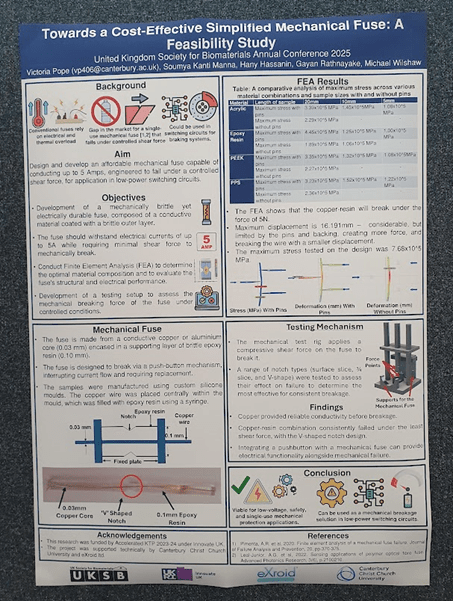Understanding Replacement of Animal Research
Replacing Animal Research is a UK-based charity dedicated to replacing the use of animals in medical research. Formerly known as the Fund for the Replacement of Animals in Medical Experiments (FRAME), the organisation has been active for over 50 years. It champions the development and use of human-relevant, non-animal research methods to advance scientific knowledge and improve human health.

Support for Researchers
Replacing Animal Research supports the scientific community by:
- Funding Innovative Research: They provide grants for projects that develop and validate non-animal methodologies, such as organ-on-chip technologies and human tissue or computer-based models.
- Scientific Journal: In partnership with Sage the charity publishes ATLA (Alternatives to Laboratory Animals), a peer-reviewed journal that publishes research on alternative methodologies and 3Rs developments.
- Education and Training: They offer training and resources to help researchers and students learn about how to search for and adopt non-animal methods.
- Support the implementation of replacement to help meet the requirements of current animal research legislation, such as the Replacement Checklist for researchers and research reviewers.
Are you a Peer reviewer? The charity run free webinars for grant reviewers on using the Replacement Checklist to support the assessment of grant applications where animal use is proposed.
You can also sign up to receive regular updates on their work.
ESB 2025 Travel Awards
This year we funded several travel awards allowing members to travel and present at ESB in Torino, Italy.
It was great to see Zarin Moghaddam (University of Surrey) present her oral presentation during the meeting.
#UKSB2025 Travel Bursary Winner Ellamay McIlhatton
By Ellamay McIlhatton, University of Ulster
Thanks to the generous support of the UKSB Travel Award, I had the opportunity to attend and present at this year’s UK Society for Biomaterials (UKSB) conference. The event brought together a diverse community of researchers and industry professionals, all working at the forefront of biomaterials science.
I was fortunate to both give an oral presentation and present a poster on my PhD research, which focuses on enhancing the corrosion resistance of magnesium alloys through calcium phosphate coatings for orthopaedic applications. It was a rewarding experience to share my work with others in the field and to receive insightful feedback and questions.


The conference also offered a valuable platform to engage with new ideas, covering topics such as regenerative medicine, next-generation implant materials, biofabrication techniques, and translational biomaterials research. These presentations provided valuable perspectives on current challenges and innovations in the field.
I’m sincerely grateful to UKSB for funding my attendance. The experience not only deepened my understanding of current trends in biomaterials research but also helped build connections that will benefit my future work.
UKSB2025 Travel Bursary Winner Frances Hasson
By Frances Hasson, University of Ulster
I had the privilege of attending the UK Society for Biomaterials (UKSB) 2025 Conference hosted by Lancaster University, thanks to the support of a Travel Award from the UKSB. I had the opportunity to present both a flash presentation and a poster on my recent work involving semi-crystalline polymer composites for biomedical applications, which sparked engaging questions and thoughtful feedback. A standout moment was being awarded the ‘Material Horizons’ poster prize by the Royal Society of Chemistry – a huge honour that affirmed the impact and relevance of my project.


Many of the conference sessions were closely aligned with my interests, particularly those focused on calcium phosphates and bioactivity in bone-interfacing materials. I found the talks on in vivo translation and replacing animal research especially insightful. Conversations with industry representatives, early career researchers, and fellow PhD students gave me valuable insights into current challenges in biomaterials development, particularly in the areas of polymer processing, bioactivity enhancement, and translational considerations for clinical use.
I’m incredibly grateful to the UKSB 2025 organising committee for a wonderful conference, and to the UKSB for the opportunity to attend through receipt of the Travel Award. I look forward to building on this experience and continuing to contribute to the biomaterials research.
Undergraduate Experience at #UKSB2025 Conference
by Victoria Pope, BEng Product Design Engineering (Year 3)
Earlier this year, I had the privilege of attending the UKSB (UK Society for Biomaterials) Annual Conference 2025, hosted at Lancaster University. As a recent undergraduate with a growing interest in biomaterials and medical device design, the conference offered a valuable platform to learn about the latest developments in the field and connect with professionals from all stages of their academic and career journeys.
One of the highlights of the event was presenting my poster titled “Towards a Cost-Effective Simplified Mechanical Fuse: A Feasibility Study”, based on an accelerated KTP project I completed at Canterbury Christ Church University in partnership with eXroid Technology Ltd in just six months. It was both humbling and empowering to share my work among a group of talented researchers, many of whom were master’s or PhD students presenting their final projects. As the only undergraduate at the conference, it was a rewarding challenge and milestone.


Inspiring Talks and Innovations
A standout moment for me was the presentation by Jessica Senior, who showcased her work on chronic wound models for medical students and training. These models provide lifelike feedback, are biodegradable, and can be reused, helping to reduce medical waste while offering effective simulation-based education. I found her work deeply aligned with my own interests, and it was a privilege to connect with her.
Networking and Career Advice
The conference provided me with the chance to network with professionals and academics across various disciplines and career stages. One particularly encouraging conversation was with a recent PhD graduate who had a similar university journey to mine. We discussed the benefits of going straight into a PhD after a Bachelor’s, as well as whether a master’s might be a better stepping stone.
Several attendees shared their own transitions into postgraduate research, noting the steep learning curve, but also how much they had grown, both intellectually and personally, through the process. These conversations gave me valuable insights into the realities of further study and helped clarify my own aspirations.
Lessons in Communication and Presentation
Aside from the networking and academic content, I also learned a lot about effective science communication. Observing the diverse poster designs and flash presentations gave me ideas on how to improve my own approach, whether that’s incorporating more graphics, using colour more strategically, or refining how I present complex ideas in a limited time. Watching three-minute presentations highlighted how important it is to balance factual content with clear messaging.
Looking Ahead
As a result of this experience, I’ve come away with:
- A stronger professional network in biomaterials and medical devices
- A clearer understanding of potential postgraduate paths
- New ideas for how to present research more effectively

Final Thoughts
Attending the UKSB Annual Conference 2025 was a fantastic experience. I learned so much, made meaningful connections, and gained clarity on my future direction. I’m very grateful for the opportunity and highly recommend this event to any student or early-career professional interested in biomaterials research.
If you would like to write for UKSB please get in touch.
#UKSB2025 Travel Awards
Closing date for applications – 17th May 2025
The UKSB council are delighted to announce the provision of competitive Travel Bursaries for UKSB member PhD students who wish to attend and present at this year’s UKSB conference. The bursaries will cover registration and up to £300 for accommodation and travel. To apply for this award you must complete the application form justifying why this bursary is required and commit to presenting at the conference and producing a short article/BLOG for the UKSB website.
The UKSB Travel Awards application process will open after abstracts have been reviewed and accepted and the closing date will be announced at that point.
Eligibility and Conditions for the UKSB 2025 Travel Award – see more info

“...this conference which has been an enriching experience.“
Anushree Ghosh Dastidar
New Innovation in vitro Brain Modelling
BrainMix
A team from Keele University, including Prof Divya Chari and Dr Chris Adams, is participating in the BBSRC National Centre for the Replacement, Refinement and Reduction of Animals in Research (NC3Rs) funded Innovate UK ICURe programme. Their goal is to explore the market potential of their research and address the challenges faced in neuroscience research.
As part of this initiative, they are developing BrainMix, a product designed to provide a simple-to-use yet representative model of the brain for neuroscience research.
The team is pleased to announce that the BrainMix landing page is now live: https://brainmix.co/
The website includes more information about BrainMix, including an explainer video and a downloadable PDF. Those interested are encouraged to visit the site, and the team is happy to arrange discussions for further inquiries.

BrainMix.co

